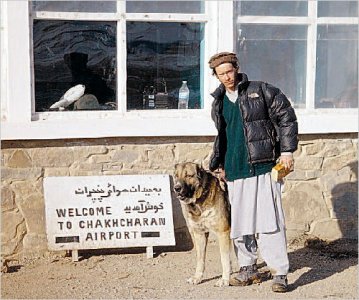It is no surprise that many third culture kids grow into adults who remain keen to keep moving. If home is a state of change, transition, expatriatism, relocation, and unfamiliarity, then it is no wonder that some TCKs grow up to be professional travellers.
I am enjoying reading J. Maarten Troost (Dutch/ Czech CCK, and TCK via those countries plus Canada and the US). I taught a fun class yesterday in which I argued that despite the apparent low-brow title, The Sex Lives of Cannibals is actually rife with fairly sophisticated allusions to Jonathan Swift's Gulliver's Travels. It may seem there's too much poop in the narrative, but the point is satirical, and it is typically Troost and the First World that are objects of critique. America especially is critiqued . . . but that's easy. America in the 21st century is so easy to critique that it may in fact be cliche to do so.
Yesterday I also made mention of Rory Stewart (TCK via the UK and Malaysia, with impressive travel experience and Middle Eastern language acquisition as an adult), specifically The Place Inbetween and The Prince of Marshes. He aims for a different market, I think (no sex, drugs or rock and roll in his titles; lots of politics and history). He's a British politician now.
I wonder if TCA travel narratives differ from travel narratives by others?
Kira Salak (not TCK) goes to Papua New Guinea, Rosemary Mahoney (not a TCK) paddles the Nile, Bill Bryson (not a TCK) hikes the Appalachian trail, among other things.
What makes their works different from Stewart or Troost? Perhaps this: Troost and Stewart are very at home with outsider status. They observe it, they write about it, and they inhabit it fondly, and without fear. For Troost, dead geckos in the water cistern are not scary but another opportunity to poke fun at himself for looking like an idiot as he scours them out in the heat of the blazing sun. For Stewart, the walking paths across Afghanistan pose dangers, challenges and discomforts, but they are food for reflection, not anxiety.
Salak, by contrast, is often scared witless (will the trail through the jungle ever end?). Mahoney is continually anxious about how Muslim Egyptians will respond to her as a single, white woman alone in a boat. Bryson, while jokingly unafraid, is not fond of feeling an outsider: outsiderliness fuels his jokes, but more because he does not enjoy it than because he relishes it.
Rory Stewart and the the dog he walked with in Afghanistan. (I borrowed this picture from a blog.)


No comments:
Post a Comment